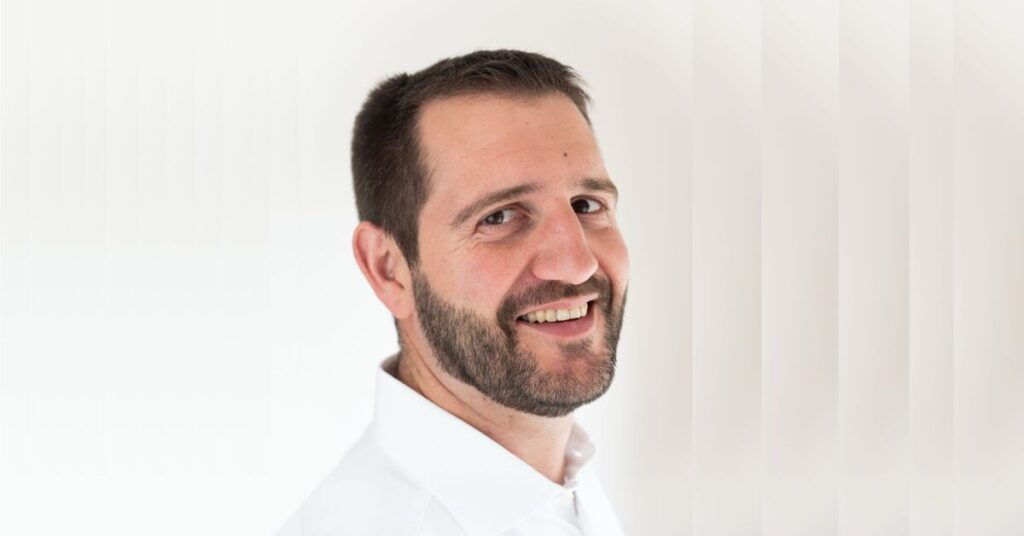We're delighted to announce the exit of CSL, the critical IoT connectivity experts, into a continuation fund, representing a return of 3.5x since we first invested in the company in 2020.
CSL has grown c. 20% organically every year of ECI’s investment, driven by expansion into new geographies and verticals. The business has seen significant growth beyond its building, security and telehealth heritage, moving into other verticals requiring critical connectivity, including the transport and logistics, commercial, retail and hospitality and utilities sectors. This includes winning major new projects, such as being selected by Vodafone as the UK National Lottery Partner.
Another driver of CSL’s growth is the extension of its product suite, including launching rSIM® in 2024, the world’s first truly resilient and intelligent SIM card that monitors connectivity and actively switches profile for maximum uptime. This is especially important for life-critical, business-critical and mission-critical applications across all verticals.
As part of ECI’s continuation fund, CSL will continue its expansion strategy, including further delivering on its M&A roadmap to enter new verticals, geographies, or acquire new technologies.
This is ECI’s first continuation vehicle and was led by existing ECI investors - Carlyle AlpInvest, HarbourVest Partners and Pantheon - demonstrating confidence in CSL continuing its strong growth trajectory.
Advisors:
Lead Financial Advisor: Evercore
Financial Advisor: IA Global Capital
Legal Advisor: Paul, Weiss, Rifkind, Wharton & Garrison LLP
Commercial Due Diligence: OC&C
Financial Due Diligence: PwC
Legal Due Diligence: Squire Patton Boggs LLP
Debt Advisory: Marlborough Partners
News
06/10/2025
ECI exits CSL, generating a 3.5x return

Congratulations to Rory Nath, who has been included as a 'Future 40 Midmarket Investment Leader' by Real Deals.
The Future 40 list, in association with Finatal, celebrates the exceptional dealmakers who have not only excelled in their roles but have also served as exemplary figures within their firms and the broader sector.
Real Deals highlighted Rory's exceptional leadership at ECI in the last 12 months, deploying over £230m in equity (including significant co-investment) in two of ECI 12's investments last year, Croud and TAG, Since joining ECI, Rory has been involved in eight platform investments and several successful exits, including CPOMS, KB Associates, and InvestisDigital.
Real Deals particularly noted Rory's thesis building and origination activity in digital marketing, which identified Croud's unique operating model and proprietary tech as key differentiators, critical in positioning ECI as the ideal partner. Based in ECI's Manchester office, Rory leads regional marketing and network building in the Northwest/Northeast, and was promoted to Partner in January 2025 in recognition of his impact.
Congratulations to all those included in the Future 40 list.

News
29/09/2025
Read Time: 1 Min
Rory Nath named as Real Deals’ Future 40 Rising Star

As AI usage becomes standardised across cyber providers, the real question is: what sets one cyber firm apart from another and how does that translate to value? Providers with the best future growth potential are constantly evolving their go-to-market strategies, defences, and vertical-specific solutions. Daniel Bailey looks at 5 key areas within the evolving value proposition in cybersecurity:
1. AI is the new baseline. So, what’s the differentiator?
AI is now standard in cyber - used by both attackers and defenders. Generative AI powers phishing and reconnaissance; defenders counter with machine learning to detect threats and automate containment, and both sides continually use learnings to optimise.
With AI now a baseline, the differentiator is all about service levels, expert oversight and integration with existing stacks or layering on top of service providers like Microsoft or Google. Leading SOCs stand out by delivering measurable outcomes, utilising MITRE ATT&CK-aligned detection engineering and proactive threat hunts to improve Mean Time to Detect (MTTD) and Mean Time to Respond (MTTR). They also combine AI and human oversight to identify and contain threats, delivering security confidence to customers.
2. Go-to-market strategy is the real innovation
Smaller cyber software providers can’t match big tech on R&D spend, so a focussed product strategy is important, as is an effective go-to-market strategy, which can become the real battleground. The most successful firms focus on integration, not replacement - working with existing tools to enhance resilience. There’s a growing demand for zero-trust service models that offer scalable and proactive defence, and for bespoke monitoring tailored to industry, company size and tech stack. Rather than selling a one-size-fits-all SOC, leading providers differentiate by how well they adapt to the customer’s environment.
3. Operational Technology: The next frontier?
Operational Technology (OT), like factory floors and smart infrastructure, is fast becoming the next frontier in cyber security. Unlike IT environments, OT systems often lag in cyber maturity, creating vulnerabilities as IoT adoption grows and connectivity between OT and IT increases. This opens the door for advanced persistent threat actors, such as Volt Typhoon, a group engaged in cyberespionage reportedly on behalf of the Chinese state.
Providers that specialise in OT security - using network segmentation, device authentication and privileged access controls - have a solid growth opportunity. This is especially critical in sectors like manufacturing, energy and healthcare, where infrastructure is both complex and often regulated.
4. Vertical-specific value and regulatory readiness
Different industries face different cyber threats - and sectors like healthcare and finance are especially exposed to sophisticated attacks from advanced persistent threat actors from the likes of Russia, China, Iran and North Korea. At the same time, regulations such as NIS2, DORA, and the upcoming UK AI Act are reshaping compliance expectations. Providers that offer sector-specific solutions and help clients navigate these frameworks are better positioned to grow. For many cyber firms, regulatory change isn’t just a challenge; it’s a growth lever. Those that make compliance a core part of their USP often see stronger valuations.
5. People remain the most significant point of vulnerability
Despite advances in automation, human behaviour remains the biggest vulnerability in cybersecurity. AI-driven deepfakes and spear phishing have made social engineering more convincing and harder to detect. That’s why cyber firms that can support customers to upskill users as well as overlay verification tools are so valuable.
Cyber firms that focus on that change, for example, through tailored, data-driven awareness programmes, build stickier customer relationships as they are delivering behavioural change. Measuring metrics like phish-prone rate and time-to-report, as well as integrating training with existing security tools, helps foster a positive security culture. We’ve seen this in action at ISMS, whose focus on both automation and human-centric defence has proven critical as high-profile attacks continue to exploit user error.
If you would like to discuss the unique opportunities we see in the cyber sector, please get in touch.
Insights
24/09/2025
Daniel Bailey
Read Time: 3 MINUTES
Finding the value in the future of cyber

In a world increasingly shaped by artificial intelligence, the role of specialist data providers is evolving rapidly. As the volume of data explodes and the demand for precision intensifies, these providers are becoming more essential than ever. But what will separate the winners from the rest? Here are three forces shaping the future of the sector.
1. AI: threat or friend?
AI’s hunger for data is insatiable. As models become more powerful, the quality and exclusivity of the data they consume become a critical differentiator. In a world where “bad data in” means “bad decisions out,” the value of curated, proprietary, and high-integrity datasets is only increasing, which is a strong growth driver for specialist providers.
AI is giving all companies access to more data and making it easier for them to analyse it. But it creates a problem for companies, too – it levels the playing field. If everyone now has access to the same public datasets and the same AI tools, where’s the edge?
That edge lies in what can’t be scraped. Human-sourced insights, proprietary data, and niche perspectives are what is delivering value.
2. Moving up the value chain
Not all data is created equal. At the bottom of the value curve sits commoditised content - news, for example - readily available and hard to differentiate. But as you move up the chain, from research to market intelligence, analytics, pricing data, and ultimately to price reporting agencies, the value - and defensibility - of the data increases.
That is not an easy climb to make, and only certain businesses that can be nimble about their product and GTM will succeed. But those that do can unlock three significant advantages: higher revenues, greater customer stickiness, and a broader addressable market.
The value isn’t just about the data provided; it’s about the value of the use case. The more mission-critical the application, the more valuable the provider.
This is especially true in sectors where data is embedded in workflows or contracts. Proprietary inputs, expert interpretation, and tailored outputs create a virtuous cycle of relevance and reliance. If you not only have high-value data but also make it easy to integrate across existing tools and workflows, then your customers will get to unlock that value. The winners will be those who not only own the data but also understand how to make it indispensable.
3. Who will win?
There are three key areas where we’re seeing strong growth for specialist data providers:
- The trusted source: In a post-truth era, trust is currency. The most successful data providers will be those seen as reliable and authoritative - combining credibility with deep domain expertise. Think of the role Insurance Insider plays in its niche: not just providing market intelligence but shaping the conversation. In a world awash with information, being the source that decision-makers turn to and believe is a powerful differentiator. Trust isn’t just about accuracy; it’s also about ensuring it is secure, compliant and ethically collected, and providers will need to give customers comfort about the defensibility of their data.
- The data curator: The world is awash with data, so those who can curate data for specific business needs are adding real value to their end customers. The winners will be those who can contextualise information, not just collect it, and deliver insight in a form they can act on.
- The data facilitator: The best providers will help clients leverage data, not just access it. That means working alongside businesses to understand their goals, tailoring outputs to their needs, and embedding insights into workflows. For example data into healthcare and pharma, there's a difference between just giving medical professionals access to all the right information and facilitating how that information can be passed securely onto patients. In short, winners will be the ones who turn noise into action.
Across all these areas, speed matters. In fast-moving industries, the timeliness of data and alerts can be the difference between reacting and leading. Providers who deliver timely, actionable insights will be indispensable in decision-making environments.
If you would like to discuss the unique opportunities we see in the data sector, please get in touch.
Insights
22/09/2025
What does the future hold for specialist data providers?

In recognition of a fantastic year of progress by the ECI team, we have been shortlisted for Growth and Buyout Fund of the Year at the GP Bullhound 2025 Investor Allstars awards. This is ECI's fourth Fund of the Year shortlisting in 2025, having already been nominated at the British Private Equity Awards, Real Deals Sustainable Investment Awards, and the North West Dealmakers Awards.
Investor Allstars celebrates and shines a light on the entrepreneurs and investors driving innovation and growth of the European tech ecosystem.
The last 12 months has been a year of strong activity for ECI, continuing our focus on backing high-growth, resilient businesses and supporting our portfolio companies to unlock value and achieve their growth ambitions. This shortlisting represents the calibre of the management teams that we back, and the hard work of the ECI team in supporting management teams to achieve their objectives.
Congratulations to all the investors and entrepreneurs shortlisted. Winners will be announced at the Allstars Awards ceremony taking place on 16th October.
See the full shortlist here.
News
18/09/2025
ECI shortlisted for Growth and Buyout Fund of the Year at Allstars 2025

Peoplesafe, the global provider of workforce safety software and solutions backed by ECI, has announced exceptional mid-year results, accelerating to CARR of £26m and a CARR growth rate of 19%, whilst maintaining EBITDA margins above 50%
The rapid acceleration in the last 24 months across each of Peoplesafe’s core markets (UK, US and Canada) has been driven by the launch of its multi-award-winning software platform (‘Nexus’), further product launches, significant new customer wins, enhanced customer engagement and retention initiatives, and M&A, opening up the North American market. ECI’s Investment, Commercial and Origination teams have offered important support to the Peoplesafe team in defining and executing upon these important initiatives.
What has driven this success?
- Customer-focused innovation, with the award-winning Nexus platform enabling quick development of new innovative features that have supported expansion into new markets and broader user groups. Alongside Peoplesafe’s product and engineering teams, ECI Commercial Team members – Duncan Ramsay and Max Jackson – have supported Peoplesafe in developing and refining its product strategy. Together, this led to the successful scoping and subsequent development and launch of Peoplesafe’s market-leading platform. In recent months, under the stewardship of CTO, Will Solomon, Peoplesafe has developed and launched a number of new products, including:
- Travelsafe, which protects workers on their commute. This product has recently been rolled out by Tesco and is a solution that is open to their entire workforce of 300k employees.
- Roamsafe, a resilient signal solution that connects remote locations.
- Team Broadcast, Peoplesafe’s in-app mass notification offering.
- The establishment of Peoplesafe North America through the acquisition of OK Alone, has opened up new geographies to Peoplesafe’s suite of solutions. Five years ago, ECI’s Origination Team built a qualified pipeline of bolt-on targets relevant to Peoplesafe in North America and introduced a number of companies to Peoplesafe’s management team. Jeremy Williams, Peoplesafe CFO, has since successfully led the execution of the M&A strategy and integration programme. The establishment of Peoplesafe North America represented a significant milestone in the organisation’s international growth strategy and facilitated entry into the expanding American and Canadian markets. This move has resulted in notable commercial progress, with Peoplesafe's annual recurring revenue (ARR) growth rate in the region increasing from approximately 40% at the time of acquisition in 2023 to a latest TTM growth rate of 65%, whilst maintaining good levels of profitability. Since completing the acquisition, the company has doubled its recurring revenue in North America, securing new high-value clients in target verticals and regions such as the Florida and Nebraska Department of Corrections and Fraser Health in the home healthcare market. Alongside sales leader Mark Ryder, ECI’s North American Growth Specialist, Brett Pentz, supported Peoplesafe’s prioritisation of specific sectors and regions based on data and a market interview programme, which has enabled its commercial focus and success to date.
- Customer engagement and retention initiatives have focused on technology-enabled self-service support systems, alongside high-touch onboarding and customer success programmes ensuring value across the customer base, but particularly for larger, more complex customers (>100% net retention across the entire base, with the enterprise customer base delivering the strongest performance). A key hire in achieving this end has been the group’s COO - Jen Cosgrove - a new role in the business.
Naz Dossa, CEO of Peoplesafe, comments: “The workforce safety market is growing as more employers further invest in the wellbeing of their staff. This is helping to unlock a larger market and enable further expansion into current markets, with Peoplesafe well placed to service prospective customers with industry-leading technology and service levels.
Our unheralded success is something to celebrate and reflects the strength of our strategy and the scalable platform we’ve built over the last few years. We’ve also built a solid core to our business, adding channel partnerships to our strong direct sales to create new growth avenues for both the UK and North American businesses.
For me personally, it's always been a privilege to lead a business that keeps people safe and saves lives every month. We’re excited about what the future holds and, in particular, to extend our leadership position in the UK, maximise the North American growth opportunity, and further expand our tech suite in response to growing customer demand. M&A, which we have done some of historically, is also increasingly on the agenda now that the professionalisation of the business is complete. ECI have been an amazingly supportive partner throughout this professionalisation process, and the business is now extremely well primed for future success”
Daniel Bailey, Partner at ECI, comments: “Peoplesafe is led by an exceptionally strong team, who it is a pleasure to work with. They are doing a great job building a fantastic platform for growth. I believe that there is a lot more success to come at Peoplesafe, and I’d also echo Naz’s sentiment that it is a real privilege to support a business that helps people in their seconds and minutes of need”.
News
15/09/2025
Read Time: 1 Min
Peoplesafe accelerates growth, announcing exceptional mid-year results

We're delighted to announce that ECI has been shortlisted as Mid-Market Buyout House of the Year at the 2025 British Private Equity Awards.
The Mergermarket British Private Equity Awards are among the most respected in the industry, celebrating the firms which contribute to the growth of British business. With an exceptionally strong field of entries this year, we're proud to be recognised in the Mid-Market Buyout House of the Year category.
Over the past year, we've continued to focus on backing high-growth, resilient businesses and supporting our portfolio companies to unlock value and achieve their growth ambitions. It's fantastic to see this progress recognised in such a competitive category, and a testament to the hard work of our team and the ambitious management teams we partner with.
You can view the full shortlist and vote for ECI here.
News
11/09/2025
Read Time: 1 Min
ECI shortlisted for Mid-Market Buyout House of the Year at British Private Equity Awards 2025

We’re delighted to share the news that ECI-backed Insurance Insider, a leading digital platform providing insight and analysis for the world’s top insurers, distributors, service providers and investors, has appointed Jeremy Nicholls as its new Chief Financial Officer.

Jeremy brings 25 years of experience to the business, including the last decade in private equity–backed companies. He has a proven track record of driving revenue growth, developing and leading high-performing finance teams, and steering organisations through major transformational change. His experience will be invaluable as we continue to scale and shape the next phase of growth at Insurance Insider.
“I am ecstatic to add Jeremy to the executive team. As Insurance Insider gears up for takeoff, this is the perfect time to welcome such a high calibre CFO, whose skills and attributes will help bring our company to new heights,” said Mariana Valle, CEO of Insurance Insider.
"Insurance Insider is at a pivotal moment in its growth journey, and Jeremy is a fantastic addition to the leadership team to help navigate that journey. It is a hugely exciting time at Insurance Insider and I'm looking forward to working with Jeremy and the team as Insurance Insider continues to scale its global expertise," said Toby Fitzherbert, Investment Director at ECI Partners.
“I’m excited to join Insurance Insider and a team that is both market-leading and passionate about its work. I feel fortunate to step into a business with clear purpose, strong momentum, and a genuine commitment to its people, and I look forward to contributing to the next chapter of growth,” said Jeremy Nicholls, CFO, Insurance Insider.
News
10/09/2025
Jeremy Nicholls joins Insurance Insider as Chief Financial Officer

